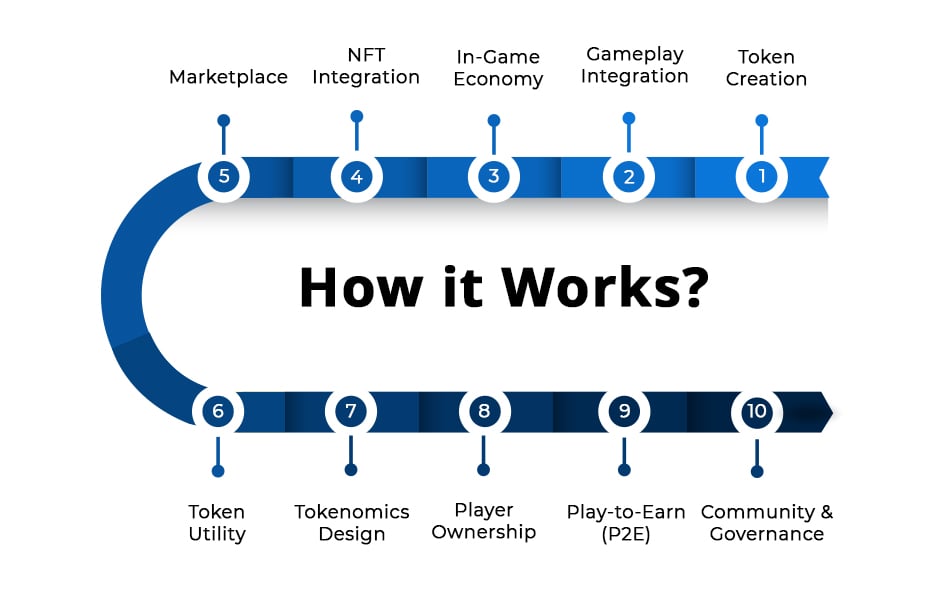Cupid's Hookup Guide
Unlock the secrets to modern dating with our insightful tips and advice.
Tokenomics Revolutionizing Game Worlds
Discover how tokenomics is transforming game worlds, unleashingPlayer power and driving value like never before! Dive into the future of gaming!
Understanding Tokenomics: How It Transforms Game Economies
Tokenomics refers to the study of the economic principles surrounding the creation, distribution, and utilization of tokens within a specific ecosystem, particularly in the realm of gaming. As the gaming industry evolves, understanding tokenomics has become crucial for developers and players alike. In traditional games, the economy is often centralized, controlled by game developers who determine the value of in-game currencies and assets. However, with the rise of decentralized technologies, tokenomics allows for player ownership and participation in the economic structures of games. This transformation not only empowers players but also fosters a more vibrant and sustainable gaming community.
Implementing robust tokenomics can significantly enhance gaming experiences by aligning incentives between players and developers. By introducing scarcity through limited edition tokens or rewards, developers can create environments that stimulate engagement and investment. Additionally, players can trade, sell, or utilize these tokens outside of the game, giving them tangible value in real-world markets. As this trend continues, a deep understanding of tokenomics will be essential for anyone involved in the gaming industry, from budding developers to seasoned players, ensuring they can navigate and thrive in the ever-evolving game economies.

Counter-Strike is a popular first-person shooter game that has captivated players around the world. The game focuses on team-based gameplay and objective-oriented missions, where players can choose to be either terrorists or counter-terrorists. For those looking to enhance their gaming experience, using a bc.game promo code can offer exciting bonuses and rewards.
The Future of Gaming: Why Tokenomics is Key to Player Ownership
The gaming industry is on the cusp of a revolutionary transformation, driven by the emergence of blockchain technology and the principles of tokenomics. As players seek more control over their in-game assets, the concept of player ownership is becoming increasingly important. With tokenomics, players can buy, sell, and trade digital assets on decentralized platforms, ensuring true ownership rather than mere licenses to use. This shift not only enhances the gaming experience but also empowers players to monetize their skills and investments in ways previously unimaginable.
Moreover, the integration of tokenomics into gaming ecosystems fosters a sense of community and engagement among players. Through reward systems driven by tokens, players are incentivized to participate in governance, development, and promotional activities. This approach cultivates a vibrant environment where players can voice their opinions and influence the future direction of their favorite games. As the industry moves toward this model, acknowledging tokenomics as a fundamental pillar of player ownership is essential for developers looking to thrive in the competitive gaming landscape.
How Tokenomics is Redefining In-Game Assets and Player Engagement
Tokenomics is revolutionizing the gaming industry by providing players with true ownership of in-game assets. With blockchain technology, game developers can create unique, tradable, and verifiable assets in the form of non-fungible tokens (NFTs). This shift allows players to not only earn rewards through traditional gameplay but also to sell or trade their digital belongings on secondary markets. The infusion of tokenomics into gaming ecosystems encourages players to invest in their gaming experience, enhancing their engagement and overall enjoyment. By allowing players to monetize their skills and accomplishments, tokenomics creates a new economy within games that has the potential to reshape player motivation and community interaction.
Moreover, the strategic implementation of tokenomics fosters deeper player engagement by integrating economic incentives with game mechanics. Developers can design rewarding systems wherein players earn tokens for completing quests, achieving milestones, or participating in community-driven events. These tokens can then be utilized for various in-game enhancements or even traded for real-world currency, thereby blurring the lines between virtual and actual economies. This model not only incentivizes prolonged gameplay but also cultivates a sense of community as players collaborate to achieve shared financial goals, ultimately redefining how players interact with one another and their virtual environments.